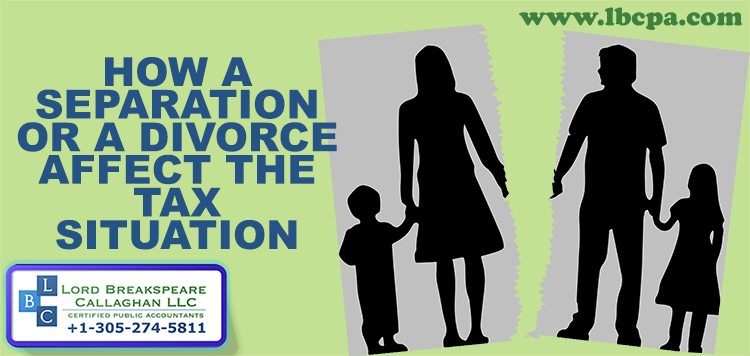LBCPA News 
Click here to go back
Tax Considerations for People Who Are Separating or Divorcing

Update tax withholding
When a taxpayer divorces or separates, they usually need to update their proper tax withholding by filing with their employer a new Form W-4, Employee's Withholding Certificate. If they receive alimony, they may have to make estimated tax payments. Taxpayers can figure out if they're withholding the correct amount with the Tax Withholding Estimator on IRS.gov.
Tax treatment of alimony and separate maintenance
- Amounts paid to a spouse or a former spouse under a divorce decree, a separate maintenance decree or a written separation agreement may be alimony or separate maintenance for federal tax purposes.
- Certain alimony or separate maintenance payments are deductible by the payer spouse, and the recipient spouse must include it in income.
Rules related to dependent children and support
Generally, the parent with custody of a child can claim that child on their tax return. If parents split custody fifty-fifty and aren't filing a joint return, they'll have to decide which parent claims the child. If the parents can't agree, taxpayers should refer to the tie-breaker rules in Publication 504, Divorced or Separated Individuals. Child support payments aren't deductible by the payer and aren't taxable to the payee.
Not all payments under a divorce or separation instrument – including a divorce decree, a separate maintenance decree or a written separation agreement – are alimony or separate maintenance. Alimony and separate maintenance doesn't include:
- Child support
- Noncash property settlements – whether in a lump-sum or installments
- Payments that are your spouse's part of community property income
- Payments to keep up the payer's property
- Use of the payer's property
- Voluntary payments
Child support is never deductible and isn't considered income. Additionally, if a divorce or separation instrument provides for alimony and child support and the payer spouse pays less than the total required, the payments apply to child support first. Only the remaining amount is considered alimony.
Report property transfers, if needed
Usually, if a taxpayer transfers property to their spouse or former spouse because of a divorce, there's no recognized gain or loss on the transfer. People may have to report the transaction on a gift tax return.
If you have any questions regarding Essential Business Accounting, Domestic Taxation, International Taxation, IRS Representation, U.S. Tax Implications of Real Estate Transactions or Financial Statements, please give us a call at +1-305-274-5811.
Source: IRS






